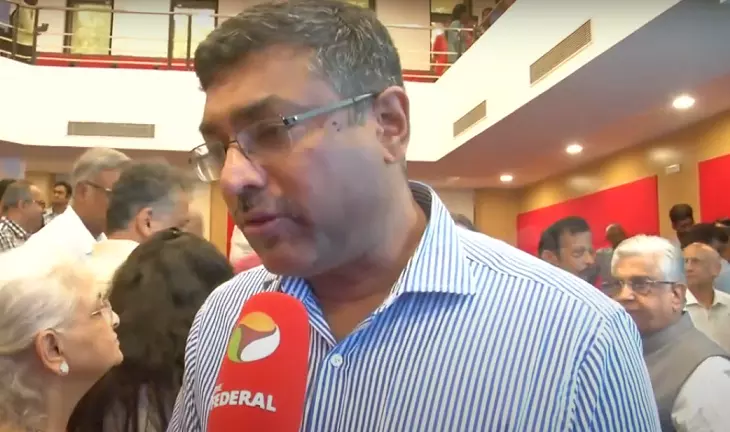
AI won’t steal jobs; but upskilling must if youth want to make most of it: MeitY secretary
S Krishnan, secretary at the Union Ministry of Electronics and IT urges youth to improve their employability skills by reskilling and retraining with AI tools to land better salaried jobs

Artificial Intelligence (AI) will not steal jobs; it will instead open avenues for the youth to earn better salaries, provided they are ready to reskill and retrain with AI tools, said S Krishnan, secretary of the Union Ministry of Electronics and Information Technology.
Speaking at the 10th G Ramachandran Endowment Lecture held at the Madras School of Economics on Saturday (April 27), Krishnan sought to allay the prevalent sentiment of job displacement among the youth in the wake of giant progress witnessed in the AI sector.
Another revolution?
Hinting that the world is at the cusp of another change akin to the industrial revolution of the 19th century, Krishnan, asserted that younger people seeking to rediscover their jobs would ascend the productivity ladder more than employees in today's job market. He, however, admitted that a few white-collar jobs will be lost.
“The technology is spreading its tentacles into many areas such as arts, healthcare, and education. AI is no longer reserved for one particular field; it is no longer restricted to the computer science department. We need to keep pace with the technology. We are in a situation similar to the early 19th century, which witnessed the industrial revolution working wonders in various sectors. But India with its leapfrogging economy mode would actually harness big improvement in its job market with good salaries. Some white-collar jobs would be lost, but that doesn’t mean AI will steal jobs,” he said.
‘India an emerging player in semiconductor industry’
On the sidelines of the event, when The Federal asked him about the growth of the semiconductor industry in India, he said, “Though Taiwan is taking the lead in the semiconductor industry, India is emerging as a major force in the design sector of semiconductor chips. Almost one-third of the global population employed in semiconductor design is located in India, and major companies like Qualcomm, IBM, and several non-manufacturing companies in the semiconductor sector have established their design units in India.”
He also noted how Tamil Nadu has become a sought-after destination for companies desiring to invest in the semiconductor sector.
“Tamil Nadu is attracting many semiconductor firms. Tata has invested ₹5,000 crore under the Union government’s Scheme for Promotion of Manufacturing of Electronic Components and Semiconductors (SPECS). Even though Ford Motor Company closed down its Sriperumbudur plant, where it produced cars, not many know that it has set up its global capability R&D centre in Chennai. AI technology is advancing, and our youth must make themselves relevant to the job market because the technology has truly arrived and is here to stay,” Krishnan said.
'Indian govt working on AI rules'
When asked about AI regulation norms he said, Indian government is working on the legislation on AI usage.
“The government is referring to the legislation in Europe and the US. We will not implement the same rules but we have to redesign and reshape the norms according to our ecosystem. AI regulation in India is still in its nascent stage,” he said.
C Rangarajan, chairperson of the Madras School of Economics, who also spoke at the event, recalled how the Reserve Bank of India (RBI) once employed thousands of people solely for manually counting rupee notes.
“During the late 1990s, the RBI employed 34,000 people, but now the total number of employees is around 14,000. One-third of these employees were engaged in manual note counting, which became unnecessary with the advent of counting machines. We cannot oppose machines and demand employment for manual counting work. Similarly, the AI market is expanding into various segments, and we must enable our youth to improve their employability skills,” he said.

